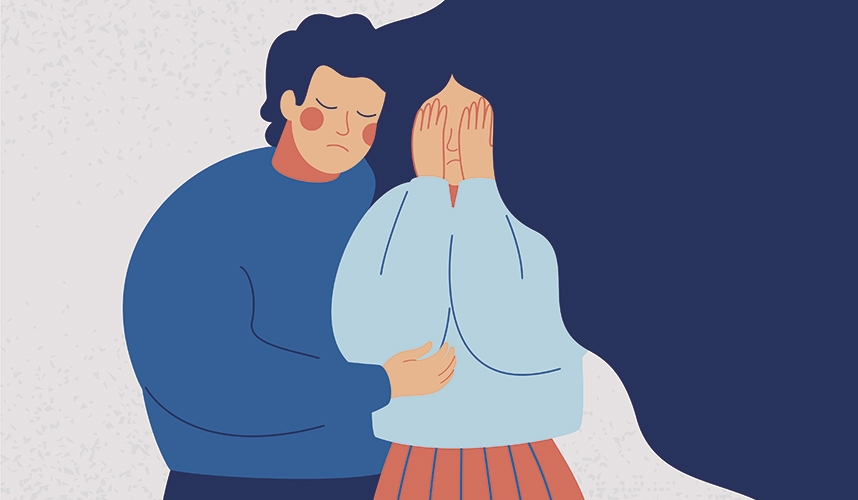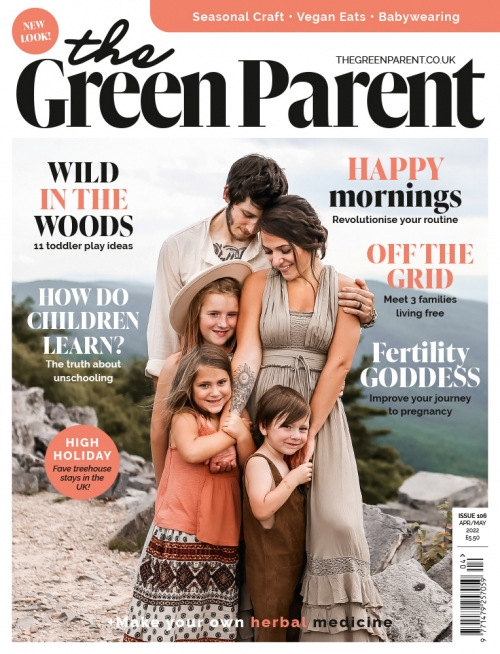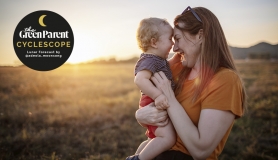Around one in four pregnancies end in loss during pregnancy or birth, but for many people this can be a lonely and isolating experience. In Why Baby Loss Matters, doula and maternity rights activist, Kay King, explores different approaches to grief and ways to support someone who has experienced loss. The sensitively-written book also includes personal accounts from families who share their insights into managing grief and finding peace.
How did you come to write Why Baby Loss Matters?
I knew for a long time that this book was needed because there was a real gap in the market. The story behind it comes from a client of mine who had a baby stillborn at term. I had supported loss before but this was fully expected to be a live birth. She felt that none of the books she had read had prepared her. Someone needed to write a book about this deep grief. I see it as a tribute to the families who have shared their personal accounts in the book.
Who is the book aimed at?
I’m really interested in grief as a topic, and the book covers lots of different circumstances of loss together in one text, including stepparent loss and IVF that doesn’t result in a baby, as well as stillbirth and miscarriage.
When I wrote the book I had in mind people who were either pregnant having experienced loss in the past or who were facing pregnancy. I was also very clear that I wanted to include grief after a termination, and I have had a big response from people who have experienced this kind of loss. They feel seen in this book in a way they haven’t before, which is very powerful.
The book is also aimed at birth workers and doulas. As birth workers, this is what we sign up to, and it’s very important that we take the time to sit and contemplate how it would be, and what we would personally need, to prepare for supporting someone through loss.
How can someone begin to heal from baby or pregnancy loss?
Try to find one small thing each day you can do to keep going. Find ways to remember and feel proud of your baby. Think about what kind of ceremony, if any, would be right for you.
There is that unspoken rule that you don’t announce a pregnancy until 12 weeks, but in not doing that you don’t allow anyone else to form a bond with the baby and you can feel isolated in your grief. Suddenly you find that you are not part of the village that you have been building around yourself, and everyone around you will interpret your loss very differently. There is nothing like peer support. When you walk into a room as a griever and you know that the other people have had the same experience and have come through it, it’s really powerful. It goes way beyond what a professional like a bereavement midwife can do. Knowing that someone has survived those days and is still alive and functioning is like a beacon to a woman or parent who has just lost their baby.
In the very early days, particularly if you have gone • to term or had a sudden baby loss, as the grieving woman or birthing person you can just hope to be held. The onus is on society to continue to support people. For example, a couple I knew opened their door to a big crate of food that had been left by friends, so that they knew there was a community of people out there that they could reach out to when they wanted.
“Sadness is present in all of our lives and we all experience it. I think that learning to be better at it would allow us to come alongside grievers”
What are some good ways to support a grieving friend or family member?
An easy thing to do would be to send a card, to acknowledge that the baby has been born and died, for example. And you can make it clear that you are there in a tangible way. Rather than say “let me know if you need anything” – because the only thing needed is the baby – say, “I’ll be in your area in the afternoon on this date and I would love to see you, just tell me yes or no”.
The language we use is important. We often try to solve things, but we can try to be non-active. Just allow people to be and don’t try to change their feelings.
Sadness is present in all of our lives and we all experience it. I think that learning to be better at it would allow us to come alongside grievers. We can say, “I am here, I will hold you, you can cry.”
Do you have any ideas for marking the baby’s life?
This is a very personal decision. Some people choose to have a cremation or a church service. I know one couple who had a land artist create a mandala on a beach, and then they stood with their friends and family and watched the tide come in. Some people like to have a sacred fire, or have their breastmilk put into jewellery.
It can be helpful to find a way to keep the baby’s memory alive in your home. You could include their name when you write cards, if you want to, or let people know if you want to be thought of as a “mother-of-three”, for example. It can be really helpful to talk through with friends what you had hoped for the child, and just share your story. I’m a big fan of people having a photo of their baby. It could be a detail, like their little fingers or toes, if you prefer.
How can we start to change the taboo around baby loss?
Basically, we can talk more about it. We can change policies in the workplace. We can ask people about their baby and their birth instead of just saying that we are sorry. We can talk about how when a soul isn’t here anymore their energy isn’t gone.
I talk about death with my kids and they understand that it is deeply sad, but that it is important to pause and remember. They aren’t shy to go up to women that I know and say, “You had a baby and it died. Do you want to tell me about your baby?” and of course, they usually do want to. Baby loss is very sad but I don’t think it means the end of happiness and peace in life. The loss can be there for your whole life but it will change shape.
GET SUPPORT
If you have experienced pregnancy loss through any circumstance:
Miscarriage Association: miscarriageassociation.org.uk
If you have experienced pregnancy loss, stillbirth, or any circumstance of baby loss:
Tommy’s: tommys.org
Sands: sands.org.uk
If you have experienced the sudden or unexpected death of a baby or young child:
Lullaby Trust: lullabytrust.org.uk







